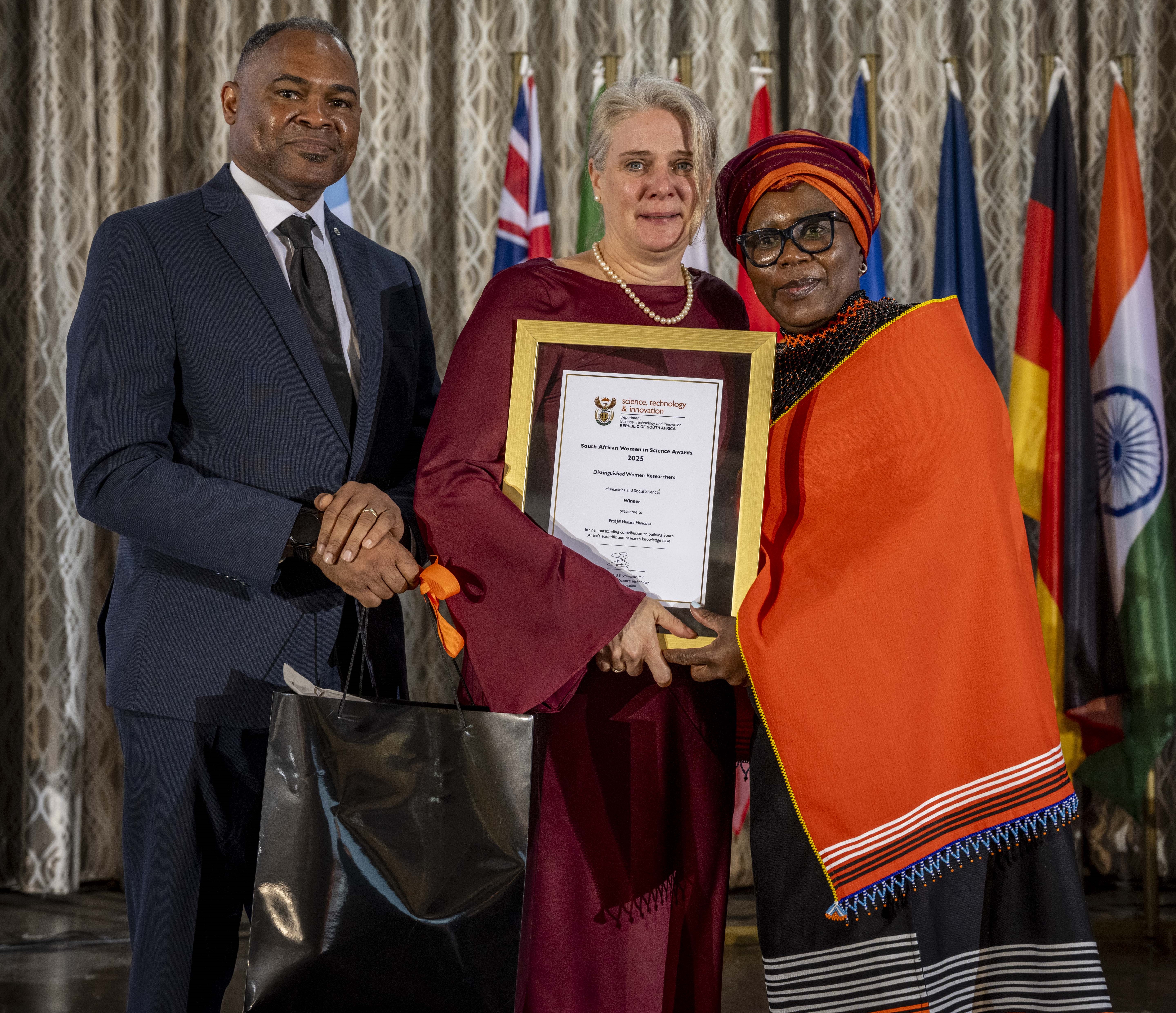Prof Jill Hanass-Hancock, Chief Specialist Scientist at the South African Medical Research Council’s (SAMRC) Gender and Health Research Unit, has been named the 2025 South African Women in Science Awards (SAWiSA) Distinguished Woman Researcher in Human and Social Sciences.
Her groundbreaking work focuses on reducing the vulnerability of people with disabilities - particularly women - to HIV and gender-based violence. Through inclusive policies, targeted interventions and innovative monitoring approaches, Prof Hanass-Hancock has helped shape more equitable health and social systems in South Africa and beyond.
In reflecting on her award, Prof Hanass-Hancock said: “This recognition is not just for me, but for the disability community whose voices continue to inspire my work. It is proof that inclusive science can transform lives, and I am deeply honoured to contribute to building a healthier and more just society.”
The SA Women in Science Awards, launched in 2003 and celebrated annually in Women’s Month, shine a spotlight on excellence in research while encouraging young women and girls to pursue careers in science. This year’s theme, “Unpacking STEM Careers: Her Voice in Science”, aligns with the 2025 UNESCO International Day of Women and Girls in Science and underscores the Department’s commitment to an inclusive national system of innovation that reflects South Africa’s diversity.
Congratulating Prof Hanass-Hancock, her manager at the SAMRC, Dr Pinky Mahlangu, praised her dedication and leadership: “Jill has set a very good example of how research can drive meaningful change. Her unwavering commitment to disability-inclusive research and translation has not only influenced national policy but also inspired a new generation of scientists. This award is richly deserved.”
Prof Hanass-Hancock’s prolific career includes more than 90 peer-reviewed publications in journals such as The Lancet, Disability and Health Journal, and the Journal of the International AIDS Society. Beyond academia, she is renowned for her innovative knowledge translation strategies, which have included film productions, disability sporting events, training tools, and national-level public engagement.
Her advocacy has secured the inclusion of people with disabilities in the National Strategic Plan on HIV, Tuberculosis (TB) and Sexually Transmitted Infections (2023–2028), as well as in South Africa’s disability-inclusive Global Fund application for 2024. She is also a respected public voice for disability rights, frequently representing the sector at international HIV/AIDS conferences and on the South African National AIDS Council.
Recognised with a B2 rating from the National Research Foundation, Prof Hanass-Hancock is also a dedicated mentor, having supervised multiple postgraduate students -including those with disabilities - and guided several early-career researchers through fellowships and internships.

